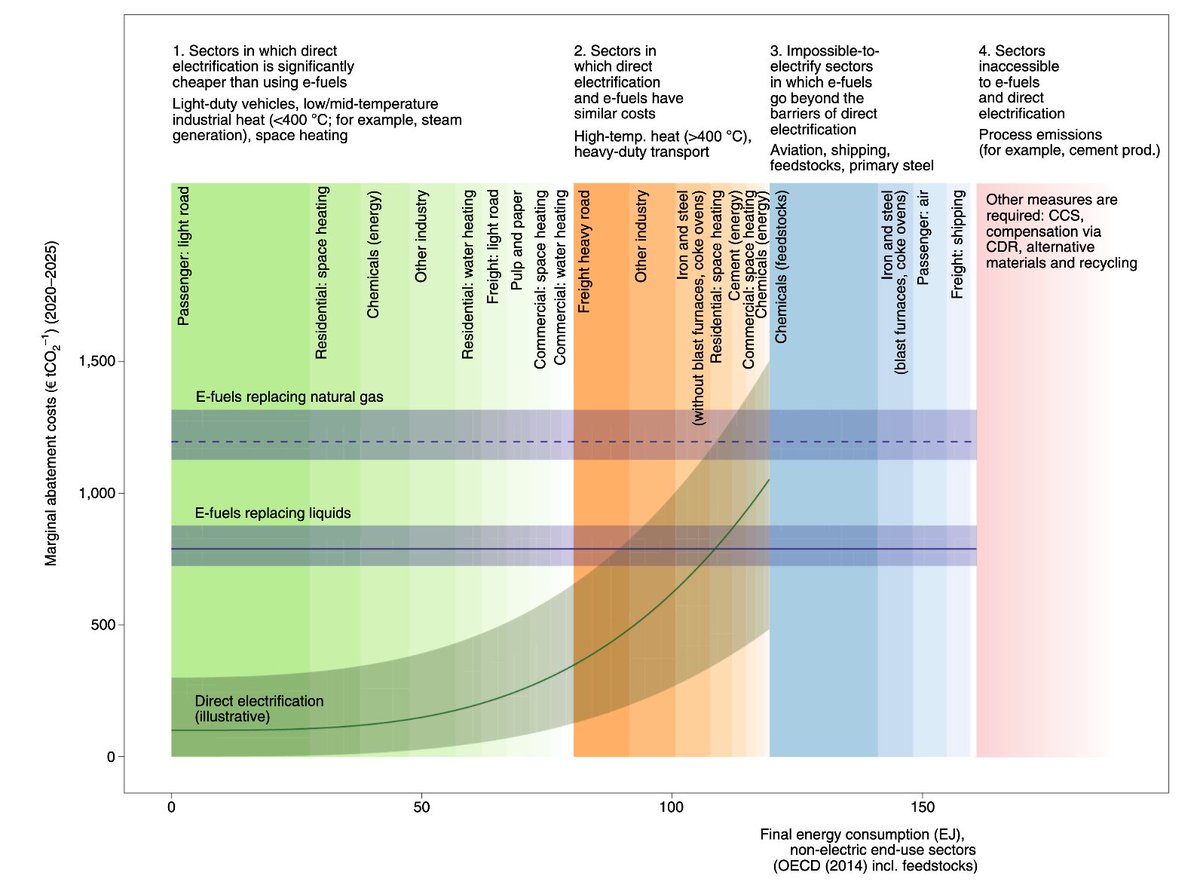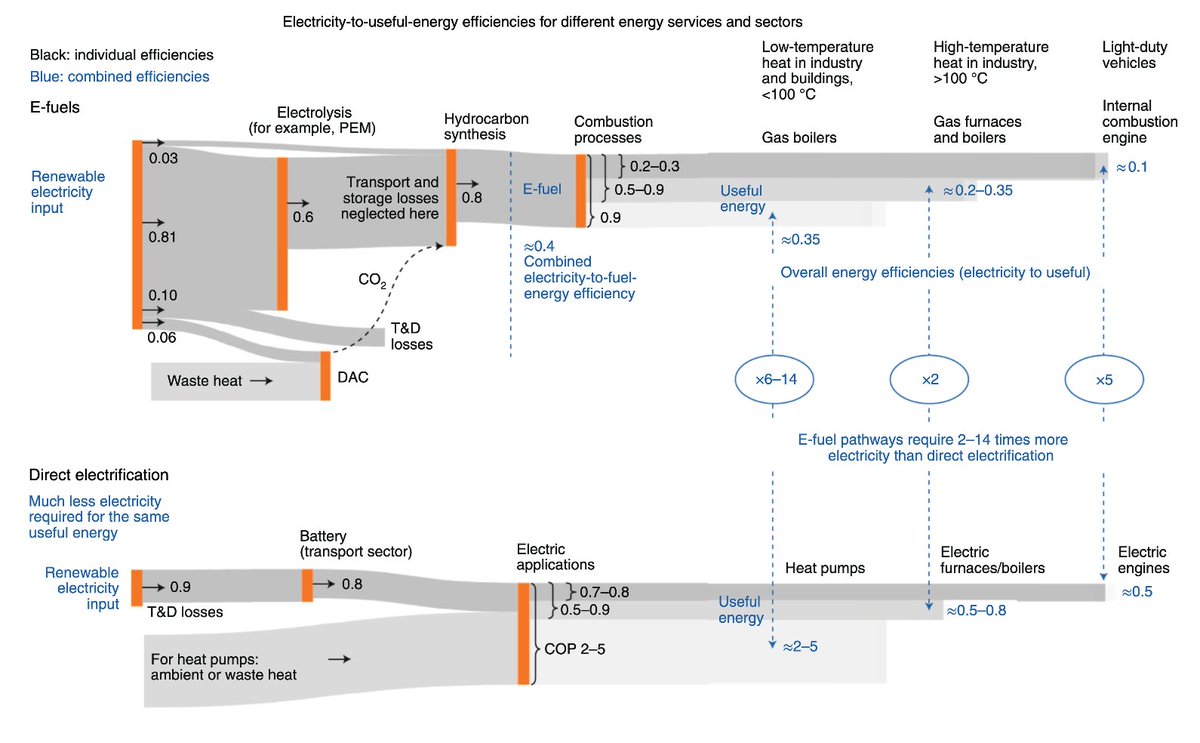
What is the least-cost pathway to decarbonise heating?
New @UCL_Energy @CREDS_UK research shows hydrogen-dominated heating would cost consumers 73% more compared to pathways relying on district heating and heat pumps.
THREAD 1/10
researchsquare.com/article/rs-629…
New @UCL_Energy @CREDS_UK research shows hydrogen-dominated heating would cost consumers 73% more compared to pathways relying on district heating and heat pumps.
THREAD 1/10
researchsquare.com/article/rs-629…

@UCL_Energy @CREDS_UK The whole UK energy system would cost 33% less if we follow heat pump and district heating pathways compared to a hydrogen-dominated pathway. 2/10 

Importantly the research concludes that “as heat pumps require less electricity than hydrogen, the requisite primary supply could be developed faster and, therefore potentially facilitate a more rapid achievement of the net-zero target and of reduced cumulative emissions.” 4/10
The research shows that future systems will need to store energy in the order of tens of TWh to cope with demand driven by extreme weather events. The costs of this are built into the modelling of pathways. 5/10
A shout out for district heating: it offers the highest system value of all three pathways as it can integrate a wide range of heat sources and provides ample scope for balancing and storage. @ChiefExecCCC made a case for district heating recently.
https://twitter.com/ChiefExecCCC/status/1397230104321957891?s=206/10
The method applied in the study is an integrated system approach. It allows to evaluate the implications of components on the whole system and to estimate the technology requirements accurately. 7/10
The use of fossil fuels to make hydrogen even with CCS is excluded because their GHG emissions would have to be balanced by atmospheric CO2 removal, such as with Direct Air Capture and Storage (DACS) technologies, with uncertain costs and environmental impacts. 8/10
Cooling buildings will be very important with rising temperatures as @theCCCuk report yesterday showed. The research highlights that heat pumps can be used for cooling whereas hydrogen cannot. 9/10 architectsjournal.co.uk/news/climate-a…
This research tallies well with existing evidence published by @IEA @PIK_Climate @FalkoUeckerdt @UKERCHQ @CREDS_UK @fraunhofer_iee @TheICCT @AgoraEW 10/10
For this reason hydrogen heating gets low priority on @MLiebreich chart.
https://twitter.com/MLiebreich/status/1397210398252732433?s=20
This is the @TheICCT analysis from December last year. theicct.org/publications/h…
The UCL research takes more of the costs into account using a more sophisticated model yet arrives at similar figures, although smaller differentials between h2, HPs and DH.
The UCL research takes more of the costs into account using a more sophisticated model yet arrives at similar figures, although smaller differentials between h2, HPs and DH.

• • •
Missing some Tweet in this thread? You can try to
force a refresh











